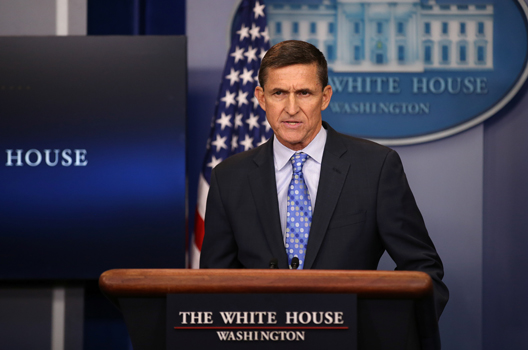 Since his election, US President Donald Trump has taken steps that harm the Iranian people by suspending visas to the United States. Trump has also adopted harsh rhetoric toward the Iranian government over missile tests and attacks by Iran-backed Houthi rebels. So far, however, he has not carried out a threat to dismantle the landmark nuclear deal that went into full implementation a year ago. This suggests that he will not attempt a “repeal and replace” strategy for an agreement that took several years and the strenuous efforts of diplomats and technocrats from seven nations to achieve.
Since his election, US President Donald Trump has taken steps that harm the Iranian people by suspending visas to the United States. Trump has also adopted harsh rhetoric toward the Iranian government over missile tests and attacks by Iran-backed Houthi rebels. So far, however, he has not carried out a threat to dismantle the landmark nuclear deal that went into full implementation a year ago. This suggests that he will not attempt a “repeal and replace” strategy for an agreement that took several years and the strenuous efforts of diplomats and technocrats from seven nations to achieve.
The Joint Comprehensive Plan of Action (JCPOA), as the agreement is known, verifiably prevents Iran from developing nuclear weapons for at least another fourteen years. Iran is not allowed to possess sufficient quantities of enriched uranium to make a single nuclear device, and it cannot build the infrastructure needed for a plutonium path to a bomb. Round-the-clock monitoring by the International Atomic Energy Agency (IAEA), including mine-to-centrifuge scrutiny of nuclear fuel, impedes any covert dash to nuclear weapons.
In the past year, Iran has abided by its obligations under the JCPOA; a joint commission created under the agreement has resolved minor disagreements. While Iranians have been disappointed at the slow pace of their economy’s recovery from the effects of international sanctions, the United States and other nations have lifted or waived all nuclear-related sanctions as required by the deal.
The Trump administration will have several months before it needs to renew sanctions waivers, which will hopefully give it time to recognize the merits of the JCPOA. A bigger concern comes from the Republican-controlled Congress, where efforts have already begun to pass new sanctions legislation tied to other Iranian policies. If these sanctions duplicate the nuclear-related penalties lifted under the JCPOA—and Trump signs them into law—the United States would then be in violation of the accord.
The United States’ European allies have been quietly lobbying Trump’s team to leave what is good enough, in terms of the nuclear deal, alone. Democrats in the Senate will also have the ability to block or slow legislation that violates the JCPOA.
Before doing anything to undermine the accord, the new administration should understand how the deal fits into a global nonproliferation strategy that must contend with a rising nuclear and missile threat from North Korea. Washington also needs to figure out an approach to the Middle East and South Asia that takes into account Iran’s influence in much of the region, from Afghanistan to Lebanon.
Iran’s rise as a significant player in the Middle East has more to do with the 2003 US invasion of Iraq, which eliminated its chief adversary, Saddam Hussein, than it does with the JCPOA. However, it is apparent that the Trump administration, which has put Iran “on notice” about its regional activities, seeks to actively counter Iran in this arena.
Trump has appeared to cede resolution of the Syria crisis to Russia, and by extension, Iran, the other main backer of Syrian President Bashar al-Assad. Russia, a signatory to the nuclear deal, would certainly oppose US efforts to scrap the JCPOA—although it might benefit from US actions that serve to isolate Washington. Iran’s Israeli and Arab adversaries have criticized the nuclear accord but seem in no hurry to see its end, although they may seek to extend its restrictions. Trump should resist foreign or congressional pressure to tamper with his predecessor’s biggest foreign policy achievement.
Barbara Slavin is acting director of the Atlantic Council’s Future of Iran Initiative. You can follow her on Twitter @barbaraslavin1.
Image: National security advisor General Michael Flynn delivers a statement daily briefing at the White House in Washington US, February 1, 2017. (Reuters/Carlos Barria)
